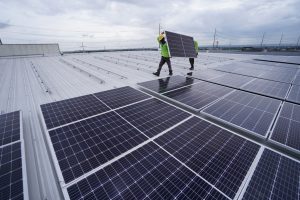Virtual PPAs proposed for trading in RE certificates – BusinessWorld Online
THE Department of Energy (DoE) said it is proposing the introduction of virtual power purchase agreements (VPPAs) in the trading of renewable energy certificates (RECs).
“There is a need to issue guidelines allowing RE developers to enter into financial arrangements for the transfer of RECs to business and industries in consideration of guaranteed payments for electricity,” according to a draft circular posted by the DoE.
Under the draft guidelines, the seller and buyer can enter into VPPAs covering the sale of voluntary RECs, without actually exporting electricity.
RECs are issued to participants in the Renewable Portfolio Standards (RPS) scheme, indicating that the energy sourced, produced, and sold or used comes from eligible RE systems.
Those not required to comply with the RPS can voluntarily purchase RECs generated by eligible RE facilities.
“For funding or financing purposes, a VPPA shall be recognized as a valid type of PPA for the assured offtake of the generated power from a VPPA Project,” the DoE said.
The DoE noted that only RE projects that generate voluntary RECs may qualify as a VPPA project. The value of the voluntary RECs associated with the electricity generated by the seller can be assessed based on established domestic and international standards.
Voluntary RECs under the VPPA will carry a term of 10 years at minimum, reckoned from the date of commercial operations and subject to renewal.
The RE market, the venue for trading RECs, commenced full commercial operations in 2024.
The market was authorized by the Renewable Energy Act of 2008 and is intended to help the government achieve its goal of raising the RE share of the power mix to at least 35% by 2030 and 50% by 2040. — Sheldeen Joy Talavera
